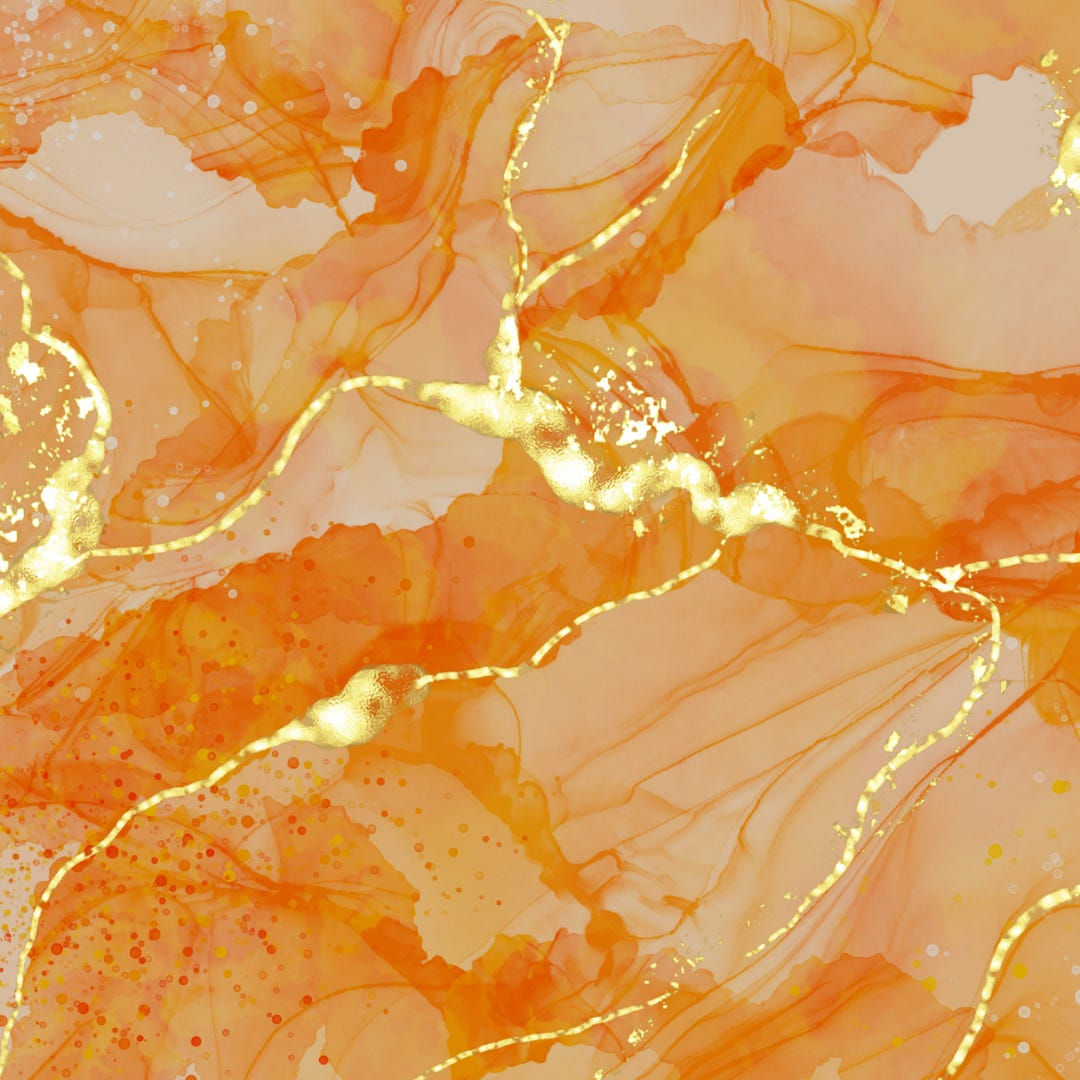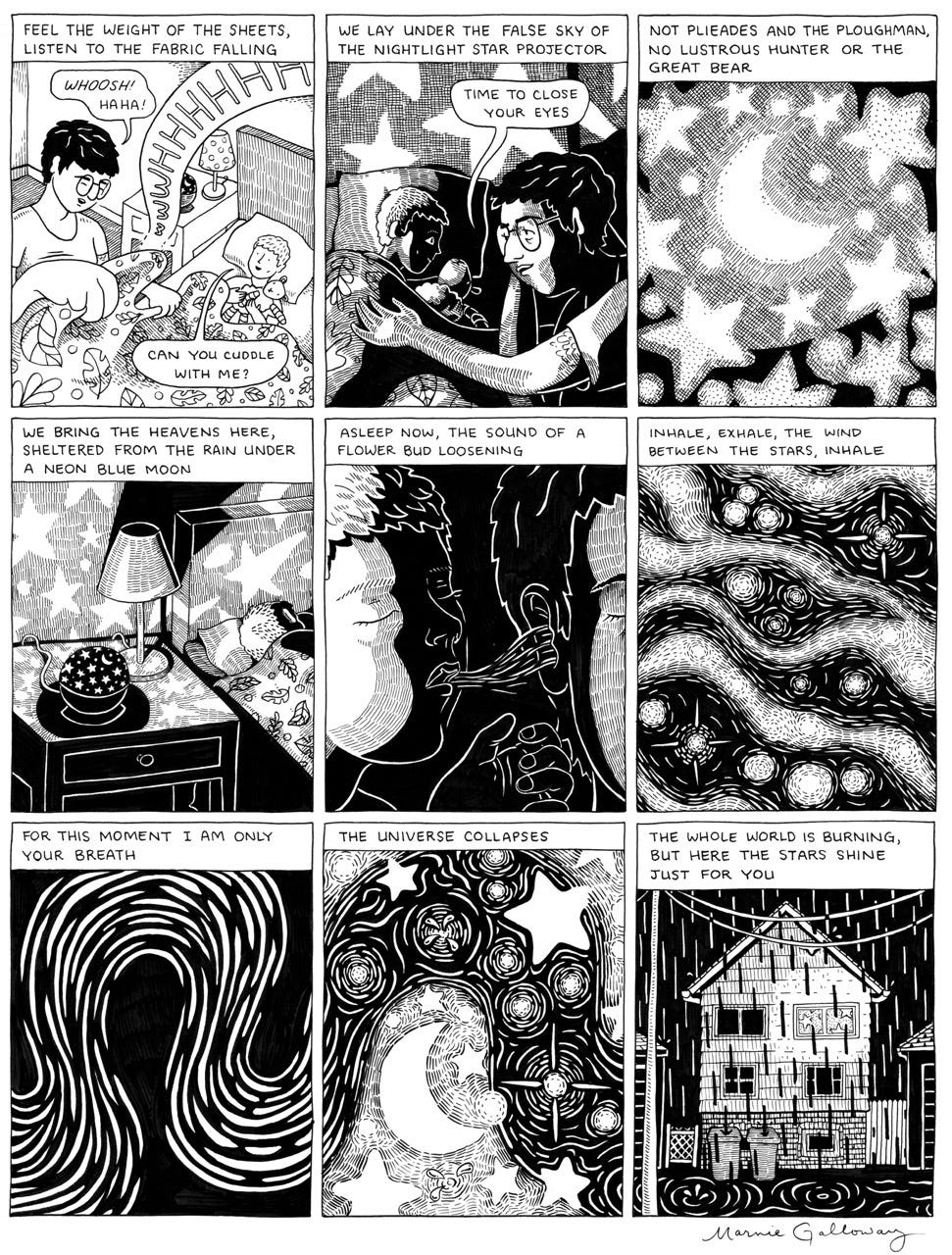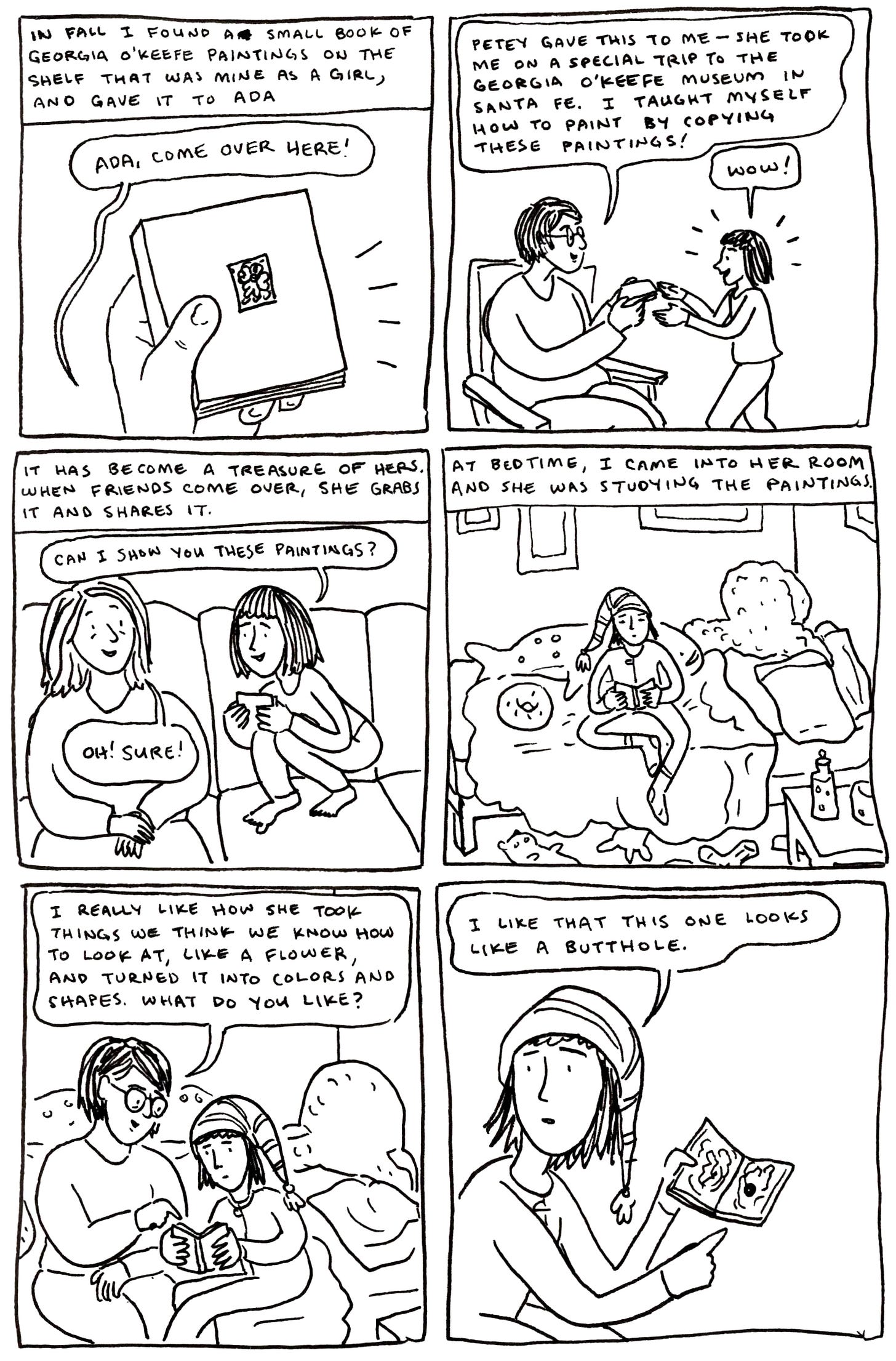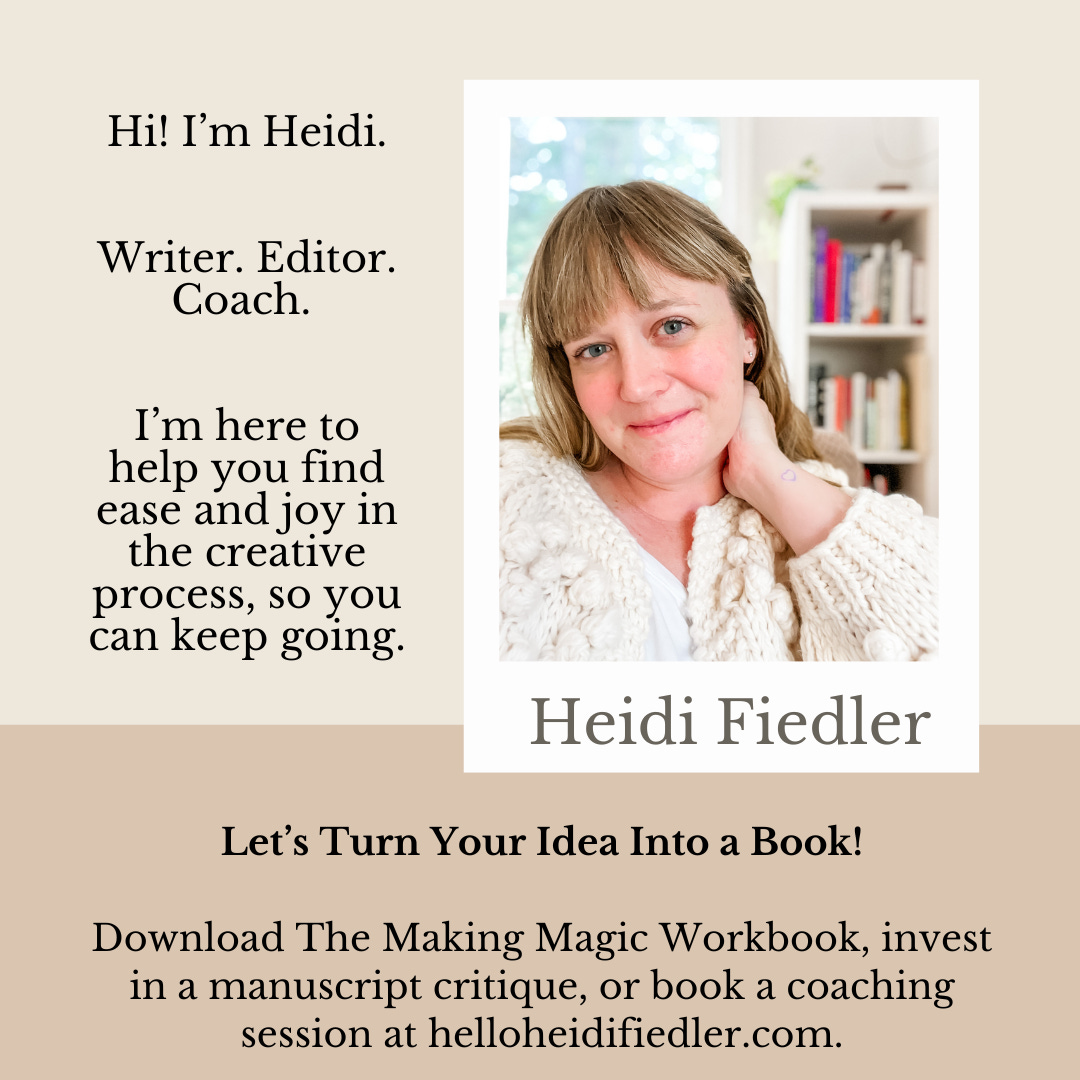How much time do you get to work on creative projects?
After many years of putting my creative work and ambition on the back burner while my children were babies and toddlers, and then returning to work delayed again because of the pandemic, I’m extraordinarily lucky to be in a place in my life and career where I work more or less full-time as an artist. In practice, that means I juggle 3 or 4 part-time paid jobs (illustration, comics, teaching) while also trying to make progress on my next big book, and working on side projects that I do for fun or pleasure or community. My time to work is while my kids are in school, 8am to 3pm, minus all the surprise days off and doctor appointment days and kids-home-sick days.
How did motherhood change your creative practice?
The most obvious and probably least interesting answer to this is also the most true: the time and energy I have to put into my work has changed radically over the past decade. I have always had to balance paid work with my own creative work, and I presumed that parenting would just be another kind of labor added to the mix that I already have to juggle. I didn’t anticipate the ways profound sleep deprivation and introverted exhaustion would thwart my ability to write or think for many years. It was hard, and the whole time I could see the external realities that made it hard: my mantra when I was low was “structural realities are not personal failures.” But then years stacked up and I didn’t have anything new to show for my exhaustion except for extraordinary children and greyer hair, and the weight of it all, the missing of my Self, felt crushing. I cried a lot.
Now that I’m through the hardest years–my youngest is 4 and in full-day preschool, I’m sleeping through the night, etc–I can see other ways that motherhood changed my practice. I am more brave, more authentic. I have less time to worry about other people’s opinion of what I’m making. I actually don’t think at all about what other people (readers, publishers, peers) might think of what I want to make: I know I’m loved, and I know the people I love value my work, and I never would have anticipated how deep and wild and expansive that feeling is. It’s freedom, moving in life from a place of so much love. I can confidently say I’m making the best work of my life.
What helps you make time and space for being creative? How do you avoid burn out?
I rigorously schedule creative time and space! Every Sunday night after my kids are asleep I pull out my paper calendar and timeblock my week, which includes scheduling time to write and be creative. If I don’t schedule it, it just doesn’t happen. There is *always* something that feels more important to do at the moment–an email from a student asking for feedback, a pile of laundry that has the sweater I know my daughter wants to wear on Friday, a grant deadline, grandparents who have texted for the third time sweetly asking for birthday gift ideas, etc etc. My calendar is my boss, and if it says that tomorrow I have from 9-11 to write, then that’s what I do.
I avoid burnout by making sure I see friends every week. My best friend and I go on an evening walk almost every Tuesday after the kids are asleep, we talk and rant and laugh through our troubles. I truly don’t know what I’d do without her. I also plan one-on-one dinners or concerts or family time with about a dozen other beloved friends. My husband does the same. An old friend once wisely said that she wanted a family-centered life, but that doesn’t mean a kid-centered life. I am also part of my family, and I need to see my friends!
What do you do when you feel filled with doubt?
I don’t want to come across as an asshole, but I rarely feel burdened with doubt about myself or the nature of my work. I know exactly who I am, even if my life or time or body or family is wildly different from a decade ago. I’m an eternally-changing Ship of Theseus who is always steering in the same direction.
It’s routine and part of the process to feel something like doubt about my work, but I wouldn’t frame that as “doubt,” it’s more an awareness that something isn’t working on a conceptual or craft level. Those are just problems to solve. I have an index card taped to my desk that says “Don’t worry. Work.” Spinning in my head never actually solves the problems on the page, or any feelings of insecurity that might pop up. The answer is always in the work.
What’s your favorite super easy creative practice to do when you’re looking for fresh ideas?
I love this question! For the past several years, I have kept up a diary comics practice that is now a central part of how I think and process my life, and is something I can do quickly while longer projects are on my desk. I draw in my sketchbook with no planning and no penciled underdrawing, recalling scenes from recent days and trying my best to be honest. I think comics are a great medium for documenting life with small children: parenting is such a physical act, and there is so much movement and so many silly pratfalls, so much joy and body horror and pleasure! I share them on my Substack, to keep myself honest.
What mothers inspire you? Who should I interview next?
There are so many cartoonists who are also mothers who have made or are making amazing comics about motherhood!! Keiler Roberts, Lauren Weinstein, Vanessa Davis, Summer Pierre, Whit Taylor, Glynnis Fawkes, Phillipa Rice, Julia Wertz, Alli Katz, Becky Barnicoat, Julia Gootzeit, Anna Härmälä, Lucy Knisley–I am just riffing off the top of my head and I’m sure as soon as I send this to you I’ll kick myself for forgetting a mountain of favorites. I truly could go on and on–and this list is only folks who make memoir/autobio/diary comics about motherhood, and doesn’t even include the many amazing cartoonists who are mothers who make comics about literally anything else. Ooh, also Meg Lemke, who runs Mutha Magazine–she’s a force for good in the world.
What do you hope your kids will learn about creativity from you?
I hope that they see that I take creative work and creative play equally seriously. I work while they’re at school, and they know that the work I’m doing is drawing pictures and telling stories and researching and thinking very hard about whatever it is I’m working on. They see that it is time consuming and rigorous and skillful, and that the labor of making art is worth taking just as seriously as, for instance, the labor of their dad’s job, which is a more traditional meetings-about-numbers-and-strategy corporate job. But as a family we also play creatively a lot, it’s the heart of our family culture. I’m taking a ceramics class with my kids and it’s so fun to be just awful at something! We laugh a lot at our lumpy creations, then go home and draw silly monsters, and then go for walks as their dad improvises stories. It’s all important.
If there was a movie version of your life, who would you like to play you and what story do you want her to tell?
Ooh I love this, ok, listen up Hollywood: what if we made a loose remake of Drop Dead Fred but it’s about an uptight queer woman in a hetero marriage who loses touch with and rediscovers their queerness and joyful weirdness through motherhood. Merrit Weaver (me) is on the edge of meltdown dealing with the identity-flattening steamroll of parenting young children and domestic labors and work while Cole Escola (also me) is her invisible altar ego yelling relevant quotes from golden age movies and salty comebacks and pushing her toward impulsive, id-driven desires. Ugh, now I’m mad that this movie doesn’t already exist! Someone get on this!
What would you bring to a favorites party?
I had to look up what this is, what a fun idea for a party! I’d bring a pile of sketchbooks with good paper and Tombow Fudenosuke pens, and a stack of Making Comics by Lynda Barry.
Marnie Galloway is a cartoonist and artist best known for her Xeric Award winning wordless graphic novel In the Sounds and Seas, short comics Burrow, Particle/Wave, and Slightly Plural, as well as Abortion Pill Zine, published in collaboration with Isabella Rotman and Sage Coffey. Her comics have appeared in Best American Comics, The New York Times, PEN America, Cricket Magazine, Saveur Magazine, and MUTHA Magazine, and select illustration clients include Viking Press, Cambridge University Press, RIT Press, 826CHI, Narratively, Muse Magazine, and Chicago Review Press. Marnie formerly served as an organizer of the Chicago Alternative Comics Expo (CAKE), and as staff cartoonist at Ask Magazine, where she made science comics for kids for eight years. Marnie lives in Chicago, Illinois with her husband Tom and their three small children, ages 4, 6, and 8. She is currently teaching undergraduate comics classes at the School of the Art Institute of Chicago and is working on her next graphic novel. You can follow her on Instagram @marniegalloway_comics, visit her website marnie-galloway.com or connect with her on Substack.
Nebula Notebook is a place to meet kindred spirits, get inspired, and learn how to find ease and joy in the creative process—even when life is bananas. 🍌🍌🍌
✏️ PS—The fastest way to grow as a writer is to book a manuscript critique or a creative coaching session with an expert. My clients get agents, sell books, and win awards. They also learn how to enjoy the creative process, so they can keep going when life gets hard. 👏










